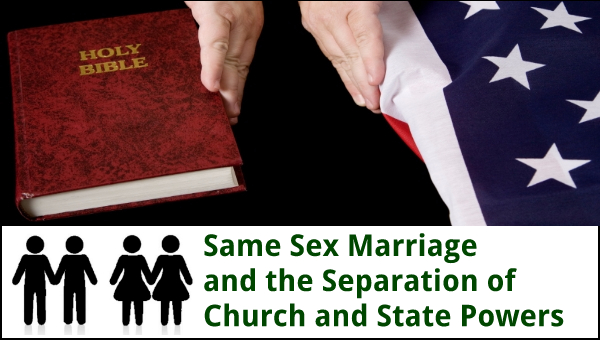By Tyson Thorne

There are many organizations that consider themselves watchdogs of the first amendment, assuring that there is a complete separation of church and state in government organization. The American Civil Liberty Union (ACLU) and Freedom From Religion Foundation (FFRF) are perhaps the most well-known, and we’ve covered a few of their attempts to silence Christians in the public square. We’ve maintained that their agenda stems from a misunderstanding of the first amendment, which is about powers and not ideologies. The state shall not exercise authority over the church, and likewise the church has no authority over the state. That is very different from the dividing wall of hostility promoted by these organizations.
For all the concern the ACLU and FFRF have toward Christians my question is, who’s assuring the government doesn’t overstep its bounds? I ask because I believe it already has, and these same groups applauded the moment. On December 21, 2009, the federal government passed legislation legalizing same sex marriage. On its face, this isn’t outside the realm of their authority. The government issues marriage licenses and any justice of the peace may officiate a wedding. If the government wants to permit same sex marriage for tax purposes and provide a path to do so inside its own structure, that’s their business. The problem arises when the government requires that churches, ministers, bakeries and florists, photographers and others to be involved in such ceremonies.
Legislators reasoned that same sex marriage is a civil action, not unlike giving freedoms to minority Americans such as giving the black community the right to vote. There is a difference, however, in that the Bible makes only one reference to a person’s skin color, and that is in describing King David’s complexion as “rudy”. Nowhere does it tell us if a person is black, brown, white or otherwise. Race is not an issue where the Bible concerned, but Scripture has plenty to say about marriage.
From the very first chapter we see that God is the inventor of marriage (Genesis 1.28 and 2.24), that the marriage ceremony is an oath before God (Numbers 30.1-16), provides the circumstances for divorce (Deuteronomy 24.1-4) and makes marriage a prerequisite for holding certain positions of authority first in the temple (as we learned last week in our study of the life of Paul) and later in the church (1 Timothy 3.2 and elsewhere). Even if one does not respect the Bible’s authority in the matter, historically marriage has been a religious institution and not a civil one.
In fact, it is the issue of marriage and government over-reach that inspired America’s founding fathers to write the first amendment. The story goes back to King Henry the VIII who had trouble staying faithful to his wife, resulting in his having a total of six wives (one at a time) before his death in 1547. During his life the Church of England fell under the authority of the Pope, who took umbrage with the King’s attitude toward marriage and was going to excommunicate the king! Before he could do so, in 1534 the king declared himself head of the Church of England, resulting in a schism with the Papacy. Clearly no good comes from the government interfering with the church’s authority over marriage.
We’ve already seen many Christians taken to court – and losing – for not participating in a same sex marriage ceremony. This is an issue that must be revisited by legislators. Unfortunately, I’m not seeing any organization or agency standing up to this gross abuse of government power in an area that it has little authority.
|
|
